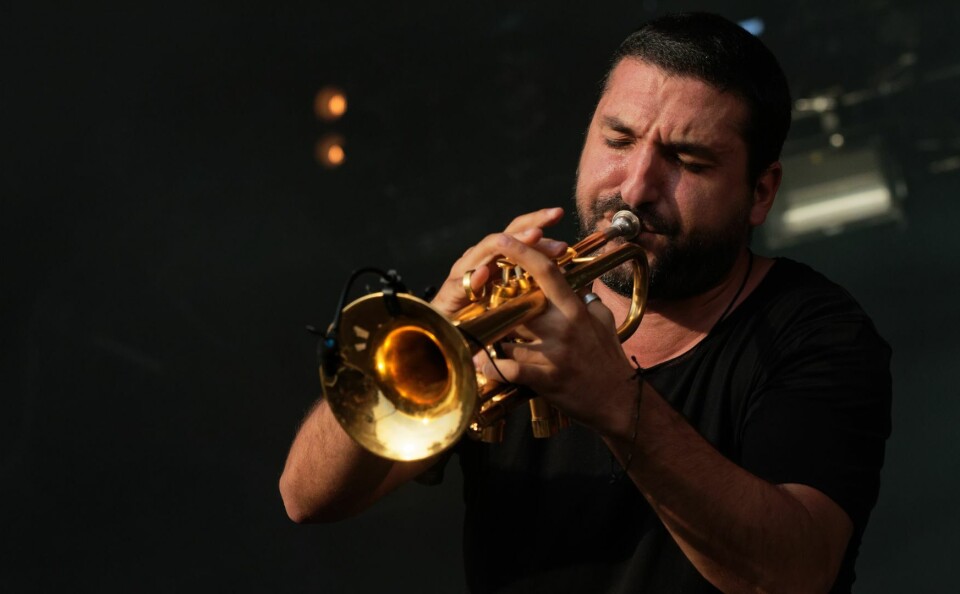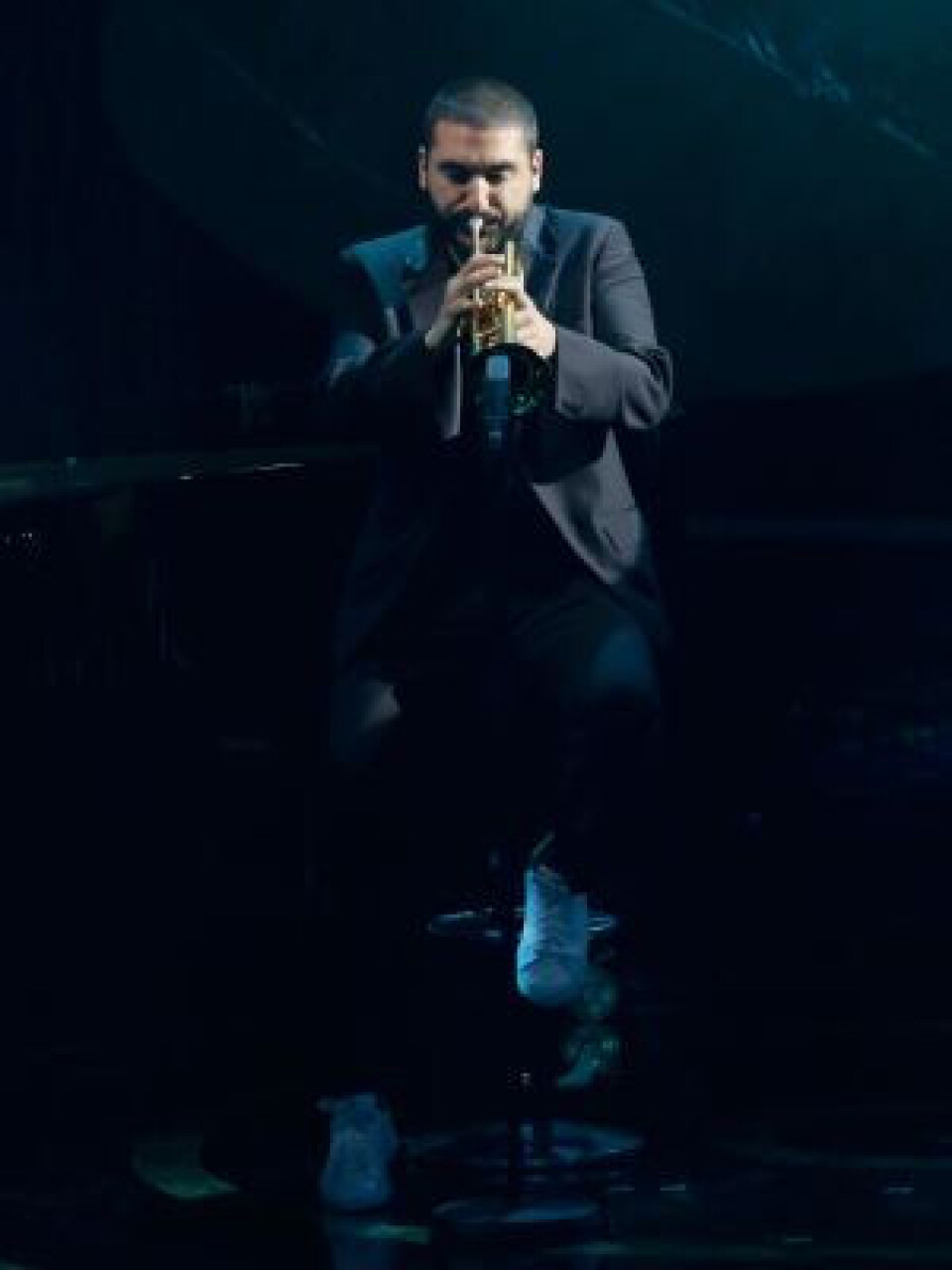-
France must do more to protect citizens detained in Iran, says former hostage
French-Irish citizen Bernard Phelan tells Théophile Larcher how 221 days in an Iranian prison have changed him irrevocably
-
Aude Biannic: trailblazing French cyclist and mother in the 2025 Tour de France Femmes
She made history as the first French cyclist to compete as a mother
-
How joining a choir in rural France helped me build a new life after retirement
Connexion reader Abigail Gammie explains how singing offered a fun way to make friends – and learn the language
Interview with Ibrahim Maalouf: ‘I compose what comes from my heart’
The Lebanese-born French trumpeter tells us of his influences, collaborations and why he preaches the message of love

The eclecticism of Lebanese-born French trumpeter and composer, Ibrahim Maalouf, has made him an attractive collaborator to a variety of top-tier international musicians and artists, from Sting to Cyndi Lauper, Philip Glass, Quincy Jones and the actress Sharon Stone.
Seventeen albums under his own name, that bridge a range of musical styles and cultures, have elevated him to semi-pop star status in France.
A classically trained musician who constantly improvises, he moves effortlessly between jazz, classical European and Arabic forms.
His current release, Capacity to Love, uses catchy melodic hooks and brilliant trumpet playing in a contemporary fusion of hip-hop, soul and R&B.
He is about to take the record on tour across fourteen French cities starting in October, with a finale on November 29 in Paris in the massive Accor Arena.
A humanitarian element has long been evident in Maalouf’s music and the forces that shape it.
This time he has found inspiration in Charlie Chaplin’s passionate pro-democracy and anti-facist speech from The Dictator. He has looked beyond the film’s cinematic context to express in music similar values of political openness and the ability to embrace diversity, which ultimately, he says, are a measure of an individual’s capacity to love.
The following are edited extracts from a conversation which took place in Paris, in English, in his dressing room at the famous music venue La Cigale, before two sell-out concerts on a warm night in June, with long-term collaborator, the guitarist François Delporte.
Outside, a little later, waiting to see the second show (or hoping to), the Parisian public were lined up, often three and four deep, for hundreds of metres along the street.

Photo: Ibrahim Maalouf playing the four valve trumpet invented by his father; Credit: dpa picture alliance / Alamy
From classical to jazz then the hip-hop beats of your current release, Capacity To Love, what drives the eclecticism of your music?
I’ve always been curious about the pulse of the world we live in, and everything has changed so much in the last twenty or thirty years with the internet. With our telephones we have access to everything on the planet, musically speaking.
Artistically speaking, it would be anachronistic not to build my musical language on everything I experience.
How do you choose, then, when there’s so much music out there?
I don’t feel like I’m making any specific choice. It feels to me that I’m just expressing something that belongs to the times we’re living in.
People sometimes refer to the fact that I mix Middle East and Eastern music. I don’t even think about it.
In all sincerity I compose just what comes from my heart, and I don’t think about it very much.
I adapt my knowledge of music and my cultures, and everything I’ve learnt in the classical world and in jazz, and playing live on stage, everything I love doing, like improvisation.
I put that knowledge into whatever I compose, but when it comes down to it, the music just comes from my heart.
The reasons for the Middle Eastern influence are evident, but Cuban, Brazilian, and Spanish and sometimes Indian and African as well. There are so many fascinating cultures everywhere.
So you put the diversity down to your curiosity, and ‘the heart’ as you put it?
Yes. I think the way someone builds their relationships with other people is linked to the way they see the world.
When I meet someone who is very different from me, someone who comes from a culture that is totally different from mine, and who might externally not have so much in common with me, I love to find out where they’re coming from. I love to find out what we share.
So in my music, I live by exactly the same rules. Anything that is different from me, I will try to see what my trumpet can do to find the common ground between us.
What drives the collaborations with performers as varied as the composer Philip Glass and the Cameroon-born American musician Richard Bona?
(Laughs) I do not envy anything. Simply, I think it’s that they are people who share the same curiosity as me.
Such people are open and curious and they like the fact that I’m not in their normal circles. So I think that makes the difference.
Specifically with Capacity to Love, how did the collaboration with Gregory Porter come about?
I love this man. For me, he’s one of the most beautiful voices in jazz, and even beyond jazz.
I met him several times and we talked about doing something. So I called him when we were in the studio in LA, and as a result of the call he drove five hours to come and meet us.
When he arrived, I talked to him about the album, and he said to me, “Oh, you’re talking about our capacity to love.” And I was like, wow, he just said in two, three words, exactly what I meant in half an hour of monologue…
And what about Sharon Stone, who performed the blistering political poem, Our Flag, on the album?
I wanted someone from the cinema world to close the album, because the opening is with Charlie Chaplin (on the track Speechless).
The cinema door is the main entrance to this album, so I wanted to close it with someone who would be as iconic as Chaplin. But in a more modern way.
I discovered that Sharon listens to my music and ‘likes’ it on Instagram. So I thought, “let’s ask her”.
I went to see her in her home in LA. I played the music to her, she was listening, and then she started crying. Because I had told her what it was about, and she was really touched. I was really moved by her reaction, so we went ahead with it.
Even between two of your records that are stylistically similar, say Red & Black Light and Illusions, there are still huge contrasts. My guess is that you’re a voracious listener. Are you?
Yes, I listen to all kinds of things.
My problem is that I don’t always remember the names of the things I listen to. You know, I’m from the generation that taps and listens (gestures at his phone) and then taps again.
But where the emotion is, I go. Always.
What are you listening to at the moment?
This last week I was focused on two gospel songs, one by the American gospel icon CeCe Winans, and one from The McClurkin Project. Let me show you, I can find them here for you (taking his phone).
I’m really into big choirs and gospel right now.
What does the four-valve microtone trumpet that you play (famously invented by your father, the innovative classical trumpeter Nassim Maalouf) give you musically?
It is an incredible link between all the styles of music that I love. The thing is with quarter tones, it’s not only about my culture, because quarter tones are everywhere – in gospel music, spiritual and Indian music, in African music, in Baroque music.
And actually, all the folk sounds of the world have quarter tones, and they are there in modern harmony. So that’s the magic of this instrument, of course.
It also allows me to play my heritage and culture along with all these other types of music as well. And you know, even in jazz, you have lots of quarter tones.
Capacity To Love came out last year and you are about to begin another series of concerts touring the record. Is this due to the fans? Is there simply still a big concert public for it?
Yes.
And it still feels fresh obviously to you as a player?
Yeah, I mean, absolutely. You know, if I don’t believe in something, I don’t do it. And if I don’t feel that I’m fresh on stage and playing something that is still moving me, I wouldn’t do it.
This album took up three years of my life in terms of producing it, and I love playing it.
I also love the fact that I was able to accept that someone else co-produced it. That has never happened in my entire life before, that I’ve allowed anyone else to touch my music.
But those guys (French NuTone and American Henry Was), are young, crazy producers and musicians. They were kids, just 22, when I started talking about the album, so about half my age.
I wanted this young generation to drive my music and take it to a place outside of my comfort zone… to push me somewhere else.
They were like expanding my boundaries a little bit, you know? And the album speaks about this, about our ‘capacity to love’, and asks are we able to love people who are different? Are we ready to do that? You know I questioned myself about this.
The way I was working on the album was all about this. I was asking myself am I able to go this far and still consider that this is my music, that it’s still me?
There is a political element to your music, from Beirut to Speechless on this latest album. But it’s obviously not party political. What is it then?
It’s more about education and Vivre Ensemble (living together) than politics. Politics should be about exactly this.
But it somehow became something else, it became a party thing. But in my opinion, it should be only about the universal (long pause). It’s a question of values. How to educate our children. Qu’est-ce qu’on lègue? – what do we want to leave to our children?
Some people would say this is a bit naive: “love, love, love”.
It’s childish in a way. But when I see or feel something that makes me uncomfortable in the world we’re living in, it reminds me that nobody ever died of an overdose of love. We cannot die of an overdose of love.
So let’s preach this message again and not be ashamed about it. Love is more important than anything else.
Related articles
‘I played bad classical music because the male composer was famous’
‘Volunteering at French jazz festival was exhausting and exhilarating’
French conductor Zahia Ziouani fights inequality with classical music
























